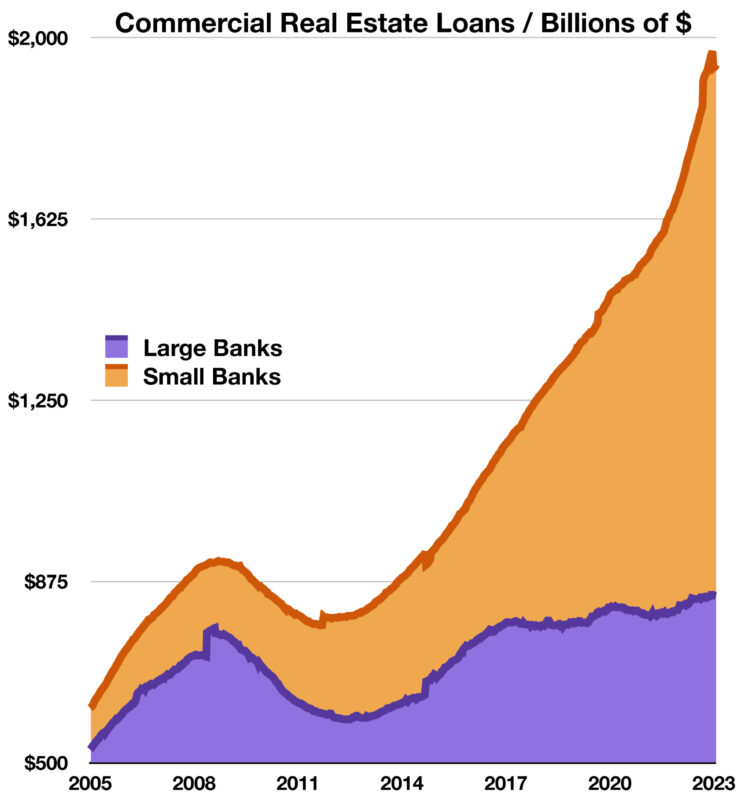Concern over additional bank failures has created ongoing uncertainty for equity and bond markets, as the collapse of First Republic Bank this past month has become the second-largest bank failure ever, with $229 billion in assets and over $100 billion in deposits.
Federal regulators stuck a deal with JPMorgan, the nation’s largest bank, to take over the failed bank and assume its loans and assets. The FDIC and JPMorgan agreed to a loss–share transaction which is projected to maximize recoveries on the assets by keeping them in the private sector. The FDIC estimates that the cost to the Deposit Insurance Fund will be about $13 billion.
Following the failure of Silicon Valley Bank, Signature Bank, and First Republic Bank, banks across the nation have been scrambling to maintain their depositors’ trust and cover losses of depositors’ withdrawals. To acquire short-term funding, many banks have turned to the Federal Reserve’s discount window, a backstop for banks that require liquidity assistance. Banks have been borrowing funds from the Fed’s discount window at levels not seen since the 2008 banking crisis.
Interest rates held steady in April with shorter-term rates rising somewhat, a result of the Fed expected to make a final rate increase before altering its course. Analysts are carefully tracking economic growth and inflation data to determine what direction the Fed might take. Many believe that the recent increase in rates has already brought about a retraction in economic activity.
The commercial real estate market has begun to show trends of shadow banking on the rise. Shadow banks are characterized as firms that issue short-term loans and invest the proceeds into mortgage-backed securities, which were at the forefront of the 2007-2009 financial crisis. Banking regulations have become more stringent since the financial crisis, yet banks still emerged as a weak link within the financial markets due to high-interest rates and speculative investments. Internationally, the International Monetary Fund (IMF) recently communicated concerns surrounding shadow banking practices in both the U.K. and South Korea.
Sources; Bloomberg, Wall Street Journal, International Monetary Fund, Federal Reserve Bank of the U.S., U.S. Treasury.

Print Version: May 2023 Macro Economic Overview
